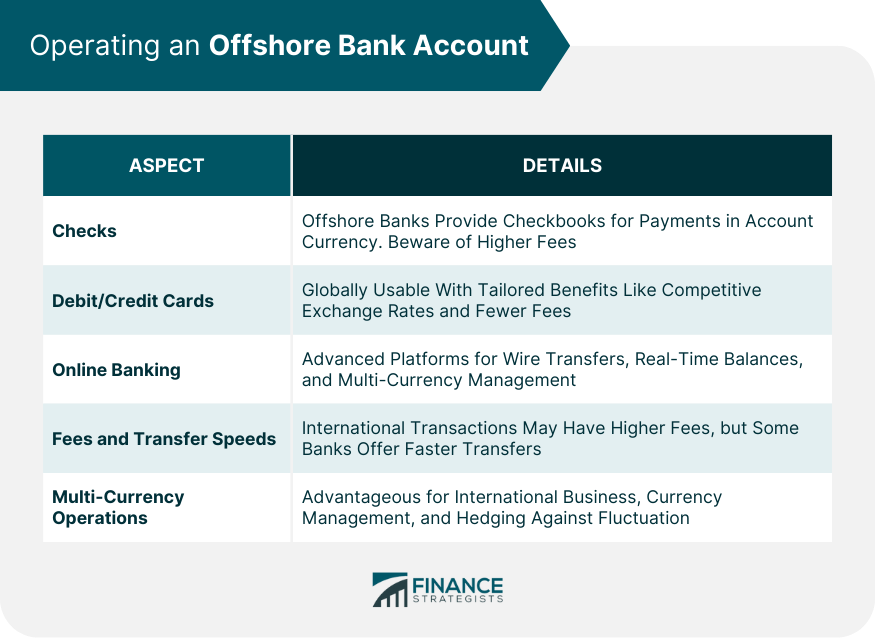Offshore Company Formation: Secret Methods to Broaden Your Service
Offshore Company Formation: Secret Methods to Broaden Your Service
Blog Article
Recognizing the Lawful Implications of Offshore Business Formation

Legal Structure for Offshore Companies
When developing an offshore company, comprehending the lawful structure governing its formation and operation is vital for conformity and risk management. Offshore business operate under certain regulations and laws that differ from those of onshore entities. The legal framework for offshore business commonly includes provisions for company registration, shareholder requirements, director responsibilities, and tax responsibilities.
Business registration includes submitting the required documentation to the suitable regulatory authorities in the chosen jurisdiction. This procedure usually requires thorough details regarding the business's structure, shareholders, and intended tasks. In addition, overseas business should follow specific investor needs, such as preserving a register of shareholders and keeping this details approximately date.
Directors of overseas business have fiduciary tasks to act in the most effective interests of the firm and its investors. They are in charge of supervising the firm's procedures, guaranteeing compliance with all pertinent legislations, and managing threats successfully. Additionally, understanding the tax obligation obligations of an overseas business is important to avoid any type of potential lawful issues. By adhering to the lawful framework controling overseas companies, companies can operate with self-confidence while lessening legal threats.


Tax Implications and Regulations
Recognizing the tax ramifications and regulations is critical when taking into consideration the establishment and operation of an overseas firm. Offshore companies are commonly subject to desirable tax routines, supplying reduced or no tax obligation prices on foreign-earned revenue.
Tax policies for overseas firms differ considerably across territories, and it is vital to look for skilled recommendations to recognize the particular demands and obligations. Failing to adhere to tax obligation laws can result in serious consequences, consisting of hefty penalties, reputational damages, and also lawsuit. Additionally, overseas jurisdictions may have reporting responsibilities to divulge financial details to pertinent authorities. Complete knowledge of tax regulations and laws, as well as correct tax obligation planning, are important to ensure the successful and certified procedure of an overseas business.
Compliance Needs and Reporting
Making sure conformity with regulative needs and keeping precise reporting are essential facets of handling an overseas firm effectively and view it now transparently. Offshore helpful site firms have to adhere to the laws and regulations of both the territory in which they are integrated and any type of various other pertinent jurisdictions where they conduct company.
Along with regulative conformity, overseas firms are often subject to reporting requirements to guarantee transparency and avoid unlawful activities such as money laundering or tax evasion. Reporting obligations may involve disclosing information about the company's ownership framework, economic tasks, and recipients. This info may need to be shared with regulatory bodies, tax authorities, or various other governmental firms, relying on the territory.
Preserving accurate and comprehensive records is crucial for showing conformity and responding to any inquiries or audits successfully. Offshore firms must execute robust coverage systems and internal controls to ensure that they fulfill all lawful requirements and run with honesty.
Property Security and Privacy Rules
In the world of overseas firm development, an essential factor to consider is the interaction in between possession security techniques and privacy laws. By structuring properties within an offshore business, people can protect their wealth and diversify their holdings across different legal frameworks. Ultimately, recognizing the detailed partnership in between possession protection strategies and personal privacy regulations is vital when thinking about offshore firm development.
Dangers and Challenges to Think about
When venturing into offshore business formation, prudent consideration of potential dangers and challenges is crucial for informed decision-making and critical planning. Furthermore, political instability or adjustments in offshore jurisdictions can posture a risk to the continuity of procedures and the defense of assets held by the overseas firm.
Challenges may likewise emerge concerning the complexity of offshore business frameworks and the need for professional lawful and economic advice to navigate the elaborate regulative structures of various territories (offshore company formation). Maintaining compliance with varying worldwide laws and policies, in addition to potential language barriers and social differences, can additionally complicate the overseas company formation process. It is critical to be mindful of these risks and challenges prior to continuing with overseas business formation to mitigate possible risks and make certain a legally sound and smooth facility
Final Thought
Finally, overseas business development entails browsing intricate legal structures, tax ramifications, conformity demands, and privacy laws. Understanding these facets is vital for alleviating risks and difficulties connected with offshore organization operations. It is essential for people and services thinking about offshore business formation to look for professional advice to make sure compliance with guidelines and to protect their properties efficiently.
The lawful framework for overseas companies commonly includes stipulations for company enrollment, shareholder official website demands, director obligations, and tax responsibilities.
Supervisors of offshore firms have fiduciary duties to act in the finest passions of the business and its investors. By adhering to the legal structure governing offshore business, businesses can operate with self-confidence while minimizing legal dangers.
In addition, political instability or changes in overseas territories can pose a danger to the connection of procedures and the protection of possessions held by the overseas firm. - offshore company formation
In conclusion, offshore business development entails browsing complex legal structures, tax obligation effects, conformity needs, and personal privacy legislations.
Report this page